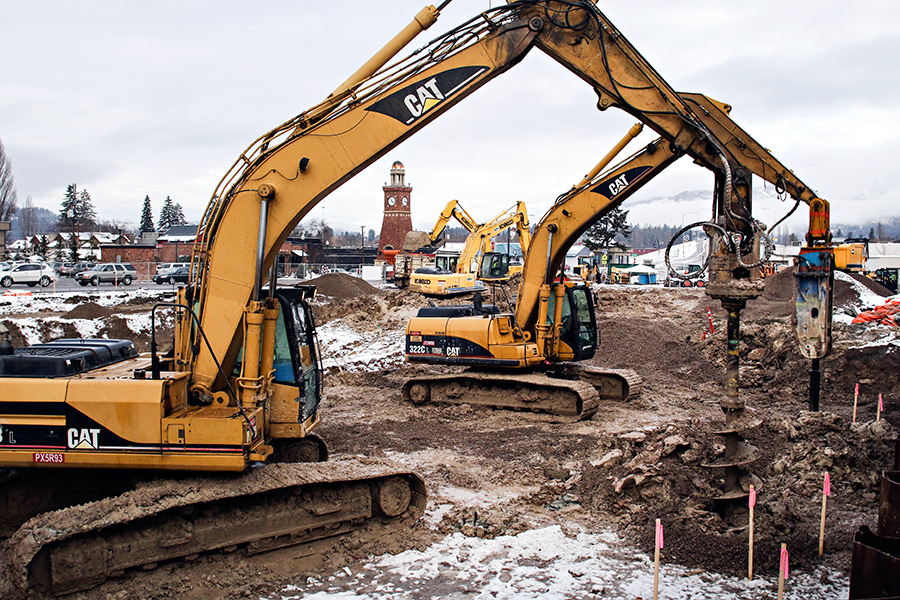The unforeseen cost of removing contaminated waste from the site of the new Whitefish City Hall and parking structure depleted the city’s contingency fund, so city council recently approved additional money to cover the budget overrun.
Facing a cost overrun of more than $1 million earlier this year, the city council in January approved a new budget of $16,041,641 for the project that was initially slated to cost $14.95 million.
But the unexpected costs from the contaminated soil removal, which ran $159,502, sank the contingency fund for the project into a deficit of $69,537, according to City Manager Chuck Stearns, who outlined four budget options for the council to consider at its Aug. 1 meeting.
The contingency fund is a reserve of money set aside to cover possible unforeseen expenses.
“Because contaminated soils were found when excavation of the City Hall site was done earlier this year, the contingency account is more than depleted,” Stearns noted in his report.
“To replenish the contingency account, we do need to request an increase in the budget for the project or we will have to find other costs to cut,” he added.
Stearns laid out two preferred options. The preferred option that the council adopted approved a change order of $123,641 to Martel Construction to remove Martel’s costs for the contaminated soil from the contingency account. It then added $219,537 to the overall project budget, restoring the contingency account to $150,000.
That will enable the city to buy furniture for conference rooms and the lobby, while also providing a buffer if they run into other unexpected costs.
The city will have to ramp up its reliance on tax-increment revenue funding to restore the contingency fund.
It’s also possible the city could be reimbursed for some of the costs associated with the contaminated soil, Stearns said. The city’s insurance carrier has a pollution insurance policy for which the city has filed a claim. The policy has a $100,000 deductible, but the city could recover $59,502, Stearns said.
There is also a chance the city might receive partial reimbursement from the state Department of Environmental Quality’s Leaking Underground Storage Tank fund.
